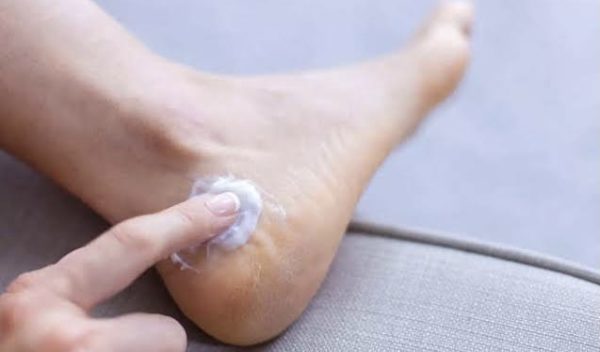
From chapped lips to weak bones, there are several signs that our bodies give us in order to indicate vitamin deficiencies.
While weak teeth and bones indicate vitamin D deficiencies, chapped lips and bleeding gums are symbolic of vitamin B and vitamin C deficiency respectively.
An unusual but important symptom is cracked heels. Quite painful and tricky to get rid of, cracked heels are winter staples that occur due to lack of moisture in the air and the body.
Even though there are several reasons why one might have cracked heels, they could also be indicative of vitamin deficiencies.
Vitamin C, E and B 3 are extremely essential for maintaining skin health and cracked heels can be a sign of deficiency of these vitamins, especially in poorer countries.
According to expert dermatologists, it is quite rare to spot cracked heels that are a result of vitamin deficiencies, but they are more commonly associated with other medical conditions like eczema, diabetes, hypothyroidism etc.
Despite these stats, it is important to acknowledge cracked heels and know the role of these three vitamins in maintaining skin health.
Vitamin B-3, C and E for skin health
Vitamin B3 is extremely important for skin and brain health. Also known as niacin, the symptoms of Vitamin B3 deficiency include memory loss, diarrhea, dermatitis and a red tongue. At times the deficiency of Vitamin B3 can cause red and irritated skin in areas that are exposed to light such as hand, feet, neck etc.
Vitamin-C
Vitamin C is needed to maintain gum and skin health. Deficiency of Vitamin C can cause a disease called scurvy which is mainly characterized by bleeding gums, bleeding around hair follicles and slow healing wounds. Hair loss, fatigue and anemia are other symptoms of Vitamin C deficiency.
Vitamin E
Vitamin E is vital for maintaining the immune system, cells and blood circulation. Also known as the beauty vitamin, it helps the skin and hair immensely. A deficiency of Vitamin E in the body can lead to muscle weakness, loss of sensation and dry skin, wrinkles and premature aging.
Treat cracked heels
Since dryness continues to be the number one reason for cracked heels, it is important to keep your skin moisturized. Increasing your water intake is the very first and the most basic step towards hydrating yourself and your skin. Also, you should exfoliate your skin with a sponge or a luffa and apply creams that contain urea or lactic acid to remove dead skin cells. Lotions, creams, special foot creams and wearing socks regularly can help keep the skin hydrated. You can also use products that are designed specifically for the skin of the heels and apply them every day during night time to pace up the process of healing.

